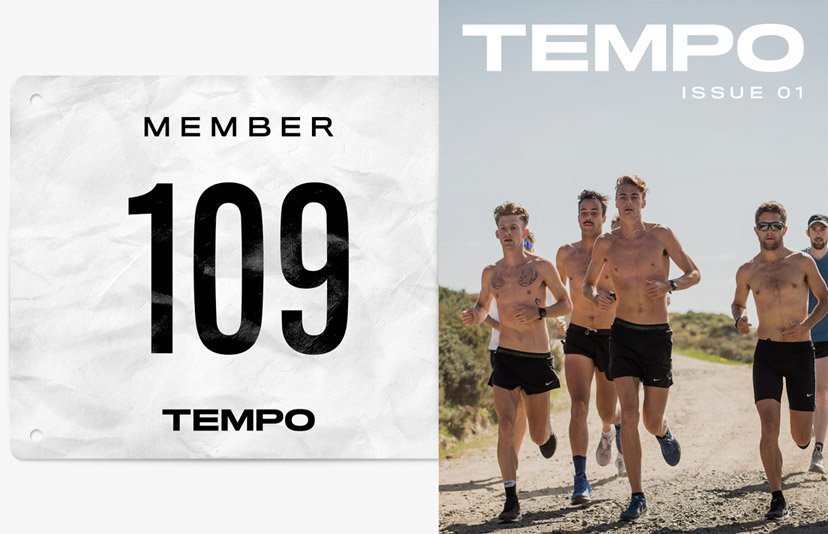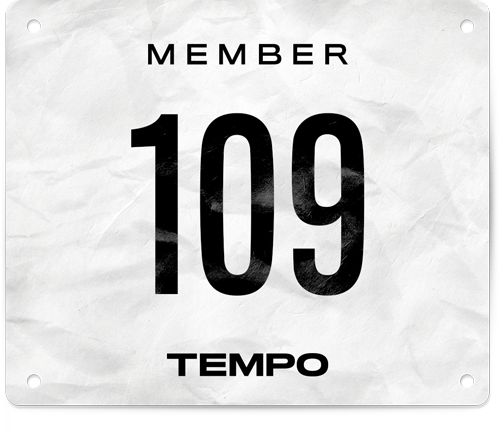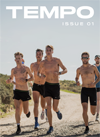Culture
THE UNSPONSORED PROJECT STRIKES BACK
IS THE SPONSORSHIP SYSTEM BROKEN?
For a second year straight, NYC-based running apparel brand Bandit is back at the hallowed grounds of Hayward Field, Eugene, OR, with its Unsponsored Project. In year two, the project is helping more than 30 unsigned athletes – up from nine last year – with unbranded apparel they can wear on and off the track during the current US Olympic Trials. It’s not only runners either; this year, Unsponsored athletes are also participating in field events such as discus, long jump and triple jump.
The program gives unsponsored athletes a range of gear, including singlets, crops, quarter-tights, buns and warm-up apparel. Same high-quality Bandit gear – no Bandit logo. The initiative is intended to allow athletes to openly declare their independence as they chase their Olympic dreams. Bandit is also providing short-term financial support for the Unsponsored participants to compete at the trials.
“The sponsorship model in running is fundamentally flawed. Many athletes find themselves struggling financially, often incurring losses simply to compete.”
Bandit Running
The scheme has already had some success, with one of the nine Unsponsored athletes at last year’s US Outdoors going on to sign a deal with a major footwear brand.
“The sponsorship model in running is fundamentally flawed,” Bandit says in a media release promoting the 2024 initiative. “Many athletes find themselves struggling financially, often incurring losses simply to compete. Moreover, they are frequently confined to using branded gear without receiving any support from those brands. Bandit Running aims to disrupt this model by enabling athletes to represent themselves while advocating for an evolved sponsorship system.”
Though he’s not part of the Unsponsored Project, the case of Eric Holt – for some of the past 12 months he’s been the fifth-fastest 1500m runner in the States – recently revealed how hard it can be. Speaking moments after running a 3:34.05 personal best to finish second at the NYC Grand Prix, he described how it costs him money to stay dedicated to his sport: “I have to pay for all my own shoes. All my own physio. I have to pay for everything.” How he’s moved back in with his parents, works a job in a psychiatric ward and has to rely on his girlfriend if they go out for dinner.
“Bandit Running aims to disrupt this model by enabling athletes to represent themselves while advocating for an evolved sponsorship system.”
Bandit Running
“I'm sacrificing everything,” Holt said. “I’m gambling and betting my life, and everything, that I'm going to be a pro one day. And I hope for it to come true.”
Holt has been knocked out in the 1500m semifinals at Eugene. But that doesn’t mean he doesn’t deserve better support. It only shows that you don’t have to scratch far below the highest echelon to find those going it alone. Obviously enough, running itself can only benefit if more guys like Holt can be offered the financial support and coaching that comes with a deal.
Not to mention, the guy has heart – he’s a battler people want to get behind. As one YouTube commenter observed of his post–semi final interview at Eugene: “Pure Guts. How can you not cheer for him … Attention shoe & apparel companies: sign this guy and I am going to purchase all the gear of that sponsor I can afford.”
Sorry, not to drift too far from the 30 Unsponsored Project athletes. You can find similar stories in the two videos Bandit has made for the project this year. Profiling 2016 Olympic gold medallist (Rio, 4x400m) Courtney Okolo – who signed a four-year deal that year which wasn’t renewed and who has been unsponsored since – and steeplechaser Aidan Tooker, the videos show them preparing for the test of Olympic selection.
Again, the fact that Okolo and Tooker were eliminated in their Eugene semifinals and heats, respectively (Tooker after falling on the second hurdle in his 3000m SC heat), doesn’t point to a flaw in the Unsponsored concept. In fact, it’s the same as in Holt’s case – we need to see more support, not less.
In the meantime, “Bandit is committed to empowering unsponsored athletes to represent themselves with strength and independence,” the brand says.
The idea isn’t for Bandit to step in as a sponsor for any of these athletes – while the brand is rapidly scaling, it’s still a start-up in the bigger scheme of things, when compared to any of the major brands. Nor is Bandit saying that athletes shouldn’t look for an agent to represent them. It’s more about doing something to acknowledge the struggle many top-level amateur athletes go through and to also give them a blank billboard from which to advertise their skills and appeal.
To that end, the company’s short-term agreements with its Unsponsored athletes come with built-in release clauses, ensuring that the participants remain free to accept traditional sponsorship offers that may arise during the Olympic Trials.
Bandit are betting on those who have backed themselves. The men and women dreaming unsupported dreams of the world’s biggest competition.
All power to them.


